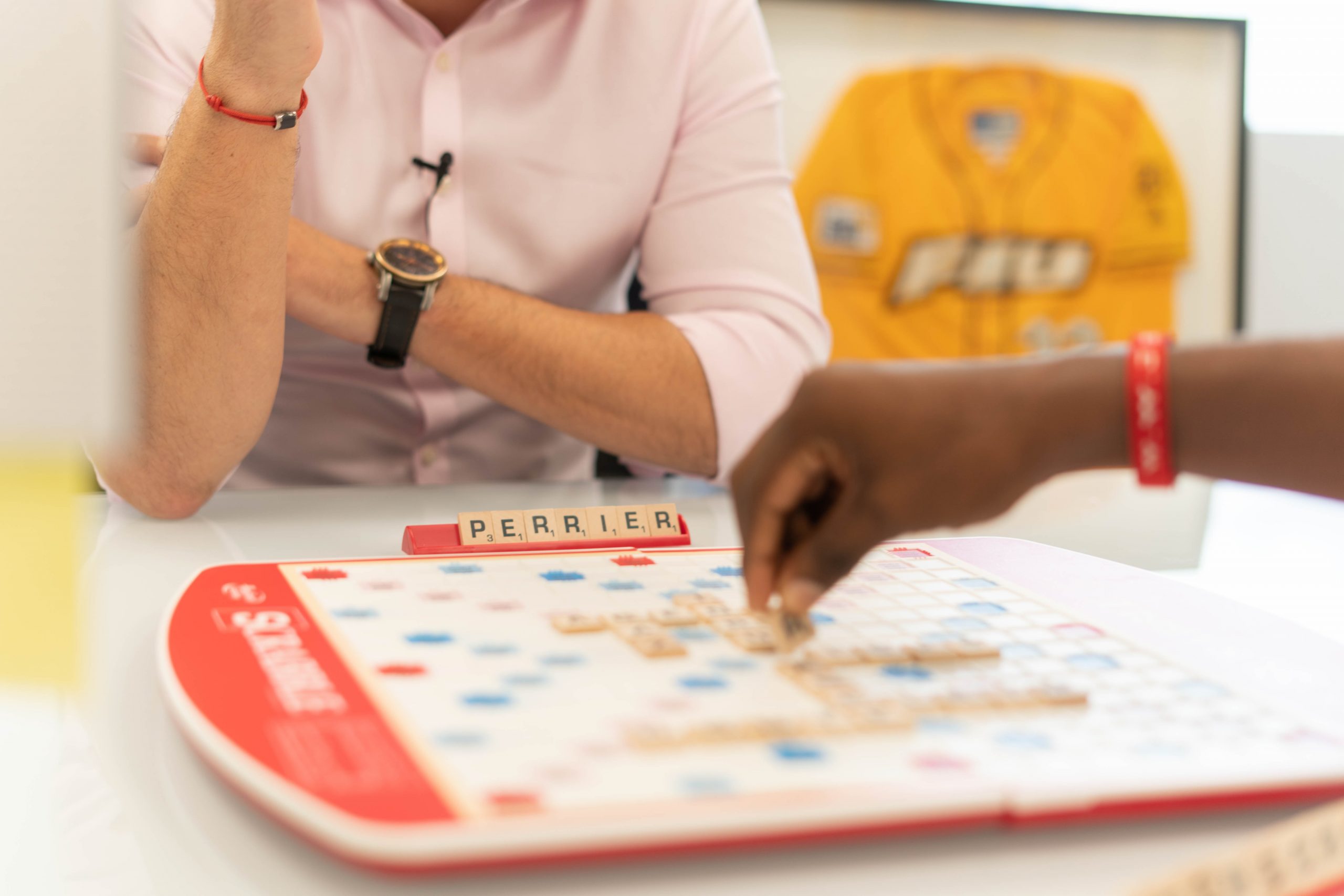8 Fun and Engaging Activities for ESL Learners

Learning English should not be confined to the classroom (or nowadays, in a one-on-one video call). You can learn the language in different settings and situations—ones that do not need a language book or an examination. Examples of these are games and activities; they are both fun and engaging and can help you practice your skills, especially if you are driven by a competitive spirit! Here are eight things you can do to practice English in an enjoyable and stimulating way; you can do these with your classmates, workmates, or even friends and family!
Taboo

“Taboo” refers to something—a word, an action, etc.—that is considered unacceptable to talk about or perform. Culture or religion is often defined, but sometimes its rules are dictated by good manners and what is socially acceptable. This theme is followed in the game Taboo.
Players are divided into teams. One representative comes to the front and gets a card. Each card includes a keyword that the representative’s teammates must guess using clues that will be given by the representative. With it, there are taboo words: terms that are related to the keyword that the representative is not allowed to say.
For example, if the keyword is “airplane,” the taboo words may be “pilot,” “fly,” “wings,” “sky,” and “passengers.” The representative must describe the keyword as best as he or she can to help his or her teammates guess it. But he or she must do it without mentioning the taboo words (nor forms of it like “flying,” “wingspan,” and the like). In this case, the representative can describe “airplane” as “a vehicle that goes up in the clouds.”
Once the keyword has been guessed, the representative takes a new card with a new keyword and set of taboo words. The goal is for the team to guess as many keywords in a given period. The team that does so wins the game!
Taboo is a great way to enrich one’s vocabulary, train one’s creativity, and practice one’s ability to think fast in the English language.
Spelling Bee

The spelling bee is a great way to learn and remember new words and practice how to spell them. You can do this activity individually or by teams, taking turns to give each other words to spell in varying difficulties. Make sure to have a dictionary on hand to give players hints such as pronunciation, origin, and definition—much like how they do it at a regular spelling bee competition.
Categories
Categories is a fun association activity that helps you relate different words to given categories. The game was not created to be a game for ESL learners, so it is traditionally played using categories that include brands, trivia, and general knowledge. For example, the category can be fast food joints. Common answers could include McDonald’s, KFC, or Burger King. You can play Categories the same way; this could help you learn more about English culture.
That said, the game is very customizable, so you can make it into a language-centered activity. You can do Categories based on more specific criteria based on what you want to practice, like verbs that start with the letter “a,” idioms about food, words or phrases you can say when you are hungry, etc.
Spoken Charades
Charades is a popular word guessing game wherein players take turns describing a given word or phrase with the goal of helping their teammates guess what it is. The activity is traditionally played silently, with representatives describing the keyword/s using non-verbal actions and gestures.
While you can play it the same way, it might be challenging, especially if you are still honing your English skills. Instead, you can play Spoken Charades, a variation of the game that allows players to describe keywords using spoken descriptions—without mentioning any of them outright, of course.
For example, your given phrase may be “raining cats and dogs.” You can describe the phrase then by saying, “it is an idiom that is said when the water that falls from the clouds is very strong” or “it is a fancy way of describing the weather using animals.”
Tongue Twisters

Tongue twisters are a great way to practice one’s pronunciation, enunciation, and accent. It is a fun activity where one can learn different words while learning about phonetics or how one’s tongue and mouth should move and be shaped to properly sound out the words. Various tongue twisters can be found online, from easy ones to more challenging ones. You can do the activity on your own, or you can challenge others to a competition to see who can best say the tongue twisters clearly!
PANTS
PANTS is a multiplayer game that is played on paper. It is best for beginners because it only requires basic knowledge of English words and culture. Plus, the game only requires one-word answers! Players pick a letter, then each one has to write a word that begins with that letter under each category of PANTS: Place, Animal, Name, Thing, then you get your Score. (You can end the round either when everybody finishes or as soon as the first player fills out each category, at which point every other player must stop, whether or not they have finished writing their answers.)
The number of points one gets is based on the unique answers you have, each accepted one corresponding to ten points. Once a round finishes, all players take turns sharing their answers. If another player lists down an answer that is the same as another player’s, both players must cross them out; none of them are then given points (or you can just give them five points; it depends on the rules you choose to set).
PANTS is a simple game, but it helps you expand your vocabulary and helps you think outside the box. For example, when one is asked to name an animal that starts with the letter “d,” the first thing that usually pops into one’s head is “dog.” But that answer runs the risk of someone having a similar one, thus losing you your points. So you are encouraged to think of other animals that start with the letter “d” such as “dingo,” “deer,” or “dragonfly.”
Reverse Pictionary

Pictionary is another popular parlor game that involves drawing. Players are divided into teams. A representative from each team receives one keyword or key phrase, then his or her teammates must guess what that term is based on a picture drawn by the representative (the representatives are not allowed to speak). The first team that guesses gets the point!
Like the other games mentioned earlier, you can play Pictionary the traditional way. It is still a great way to understand words through visual cues and visualize words by drawing them into pictures. But you can also play Reverse Pictionary, wherein the clues are not keywords and phrases but pictures. You then must describe the image to your teammates through words (without saying the elements of the photos so obviously) so that they can figure out the photo. For example, a photo of the famous cartoon character Homer Simpson from the animated series “The Simpsons” can be described as “the father of Bart, Lisa, and Maggie from the famous family of a well-known American animated series.”
Debate

Debates are an activity for more advanced English learners. It requires a higher level of speaking skills and language comprehension because it requires a lot of research; plus, participants need to present facts and opinions eloquently to prove a point. You must also have a better command of the language to express thoughts convincingly since you are essentially convincing a panel to agree with your side of an argument.
Debates usually work with two sides: one that agrees with a statement and another that is in opposition to it. For example, a debate topic could be “Homework should be banned,” with one side arguing for it and another against it.
LingualBox is a one-on-one language tutoring site that helps ESL learners master the English language, from vocabulary and grammar to pronunciation and comprehension. Our team of professional tutors can help you reach a point in English mastery where you can play and engage in fun and stimulating games and activities (like the ones mentioned here!) with ease—and more chances of winning!
